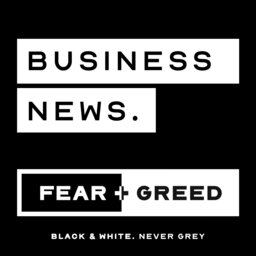Is the market overvalued?
The ASX spent much of last year at or near record highs, led by the record-setting Commonwealth Bank. So is the market overvalued?
Roger Montgomery, founder and Chief Investment Officer at Montgomery Investment Management, talks to Sean Aylmer about the arguments for and against the market being overvalued.
This is Fear & Greed's summer investing series. All information is general in nature - you should seek independent professional advice before making investment decisions.
In 1 playlist(s)
FEAR & GREED | Business News
Daily business news for people who make their own decisions, with business journalist Sean Aylmer an…Social links
Follow podcast
Recent clips

A guide to luxury holidays in 2026
06:49

Gen X’s 'dirty fantasy': the four-day work week
06:12

Dividend investing: How to pick quality income stocks
06:07
 FEAR & GREED | Business News
FEAR & GREED | Business News